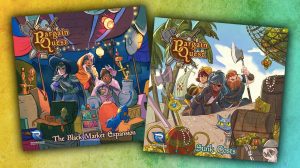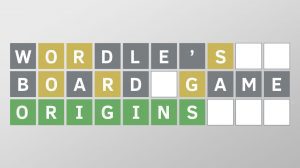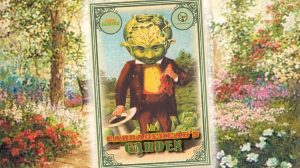1777, European visitors arrive in Fiji looking to trade with the locals. The Pacific Islanders have highly valued shrunken head treasures which the players wish to acquire for museums back home. Players offer colored glass beads in exchange, but must participate in the elaborate Fijian KAWA ritual to determine whose bead offers are most auspicious.
In Fiji players make offerings of colored beads over a series of four rounds. To win a round players aim to have the most or fewest beads of each color. A set of condition and effect cards is laid out for each round which determines who will win extra beads, depending on their offers. Players select the number of beads to offer in a series of three exchanges, after each of which the condition and effect cards are evaluated, distributing additional beads depending on who offered the most or the fewest of each color. At the end of the round shrunken head tokens are awarded depending on whose set of remaining beads best matches the current arrangement of goal cards.
After each round the goal cards, condition cards and effect cards are replaced. To win players must think ahead to understand whether an offer will likely give them more beads or less, depending on the cards in effect for the round. If players tie for a particular condition, the tied players are cancelled out, leaving the next player to follow the specified effect. This gives the game a rock-scissors-paper like feel where winning the round often depends on guessing how many beads the other players will offer.
High quality components consist of pleasing plastic beads, iconic card art, and shrunken head tokens that are both charming and macabre. Players must use tactical logic and guesswork to get an edge in this puzzling auction style game.
There are 195 countries in the world, here are some board games named after them.
No need to wash that man right out of your hair when you can play games set in the great South Pacific!











